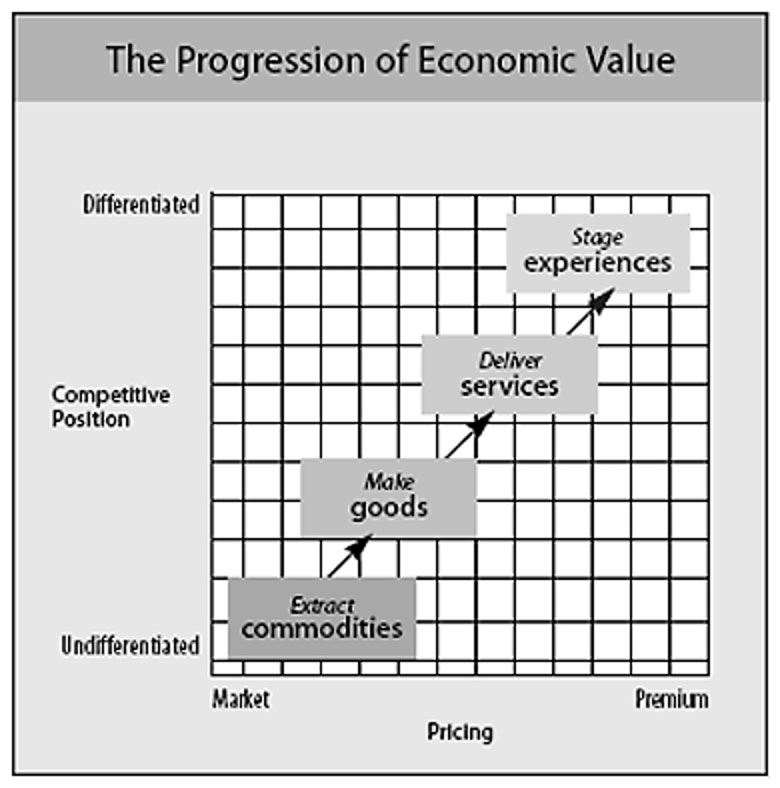
Photo source: AARN GIRI on Unsplash
----------------------------------------------------------------------------------
I’ve written before about the necessary correlation between school and life beyond school. Once again the point is captured by The School of Life’s latest book, What They Forgot to Teach You at School.
School curricula are not necessarily designed by people who have much engagement with, experience of, or talent at, the intricacies of the world beyond. School curricula are not engineered on the basis of close study of the determining ingredients of fulfilled adult lives.
Elsewhere in the book, it is argued that this lack of correlation comes down to the fact that, historically, schools were never truly “reverse engineered from the actual dilemmas of adult life.”
Another way of approaching this issue, I would suggest, is to consider the evolution of school against the history of economic progress as outlined by Pine and Gilmour back in 1998. To cut through the theory, their point is relatively simple: in all industries, there is a natural progression from relatively low-value production of goods and the delivery of services to highly valued, deliberately designed, engaging experiences. This fourth stage in this evolution, they conclude, can be called the Experience Economy. It’s that point when you start intentionally using “services as the stage, and goods as props, to engage individual customers in a way that creates a memorable event.”

Caption: The Four Stages of Economy Evolution: Pine & Gilmour
Put all of this together and I find myself wondering what our schools are going to look like when we reach the point of seeing them as intentionally designed experiences that truly anticipate and correlate with a future beyond childhood.
In a conversation this week with two of the very few Experience Designers in the world of education, we found ourselves doing some of this wondering out loud.* If we moved beyond the idea of school as simply about a set of products and services, what kinds of experiences would we create? How might it impact the way in which students access curricular content? And how could school be reverse engineered to better integrate with and support the experience of childhood and, more broadly, modern family life?
There are more questions than answers here, perhaps because we haven’t quite got there yet. To again quote The School of Life: “As a mass phenomenon, education has only been going for a couple of hundred years… We’re still at the dawn of figuring out what truly works.”
So you might be asking, is school just about the enjoyment of a well-designed experience?
Back in 1998, Pine and Gilmour might have said yes but, earlier this year, more than twenty years later, they (and a couple of others) added a fifth and critically important level to the evolution of value - the Transformations Economy - where companies actually help individuals with major and sustainable change. In other words, it’s not just about having an experience for experience’s sake, it is creating something that is demonstrably life-enhancing.
But what does it look like to reach this point?
On that, I’ve given Pine and Gilmour the almost-last word, with just a couple of small edits in parenthesis from me to make my point.
Competing on transformations makes a company [or school] responsible for working with customers [or families] to define the transformation each one seeks, identify the barriers to success, and orchestrate all the goods, services, and experiences needed to support them during their journeys. Such business [educational] models will be much harder to imitate than those that offer only goods, services, or experiences. And they promise to generate handsome rewards—not only profits but also the knowledge that the company [or school] has truly made a profound difference in its customers’ [or students’] lives.
Herein lies the key to understanding the future of School and, from it, I believe that we can extract three working principles of what could be called School Transformation Design:
Do this and we might just discover that we’ve come a long way to closing the gap between school and life beyond it.
Thanks to my conversation partners, Drew Cortese and Fernando Naigeborin who pushed my thinking this week along these lines.